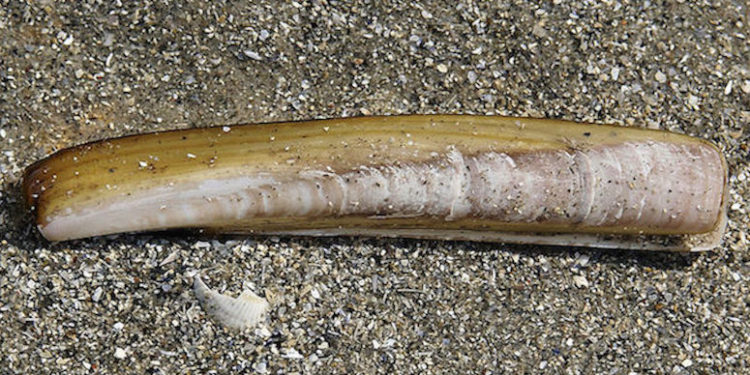A controlled trial of electrofishing for razor clams has been authorised by the Scottish Government. The planned trial will investigate the size and potential for commercial razor clam production and ensure fisheries could be operated sustainably with appropriate harvest rates.
This follows the conclusion of a consultation between industry, environmental organisations and local communities. Marine Scotland will now consult further with partner public bodies, including Scottish Natural Heritage, and with the Scottish Fishermen’s Associations to ascertain the best locations for trials to take place.
‘Scotland has a rich and diverse natural environment with a coastline that is world renowned – not only for its unique habitats but also for high quality seafood,’ said Rural Economy Secretary Fergus Ewing.
‘Responses to our consultation and previous research suggests that, where properly applied, electrofishing can be a sustainable and safe method of harvesting razor clams in a way that is less intrusive than traditional methods like dredging. We will now undertake scientific trials in specified areas to ensure we fully understand the potential of the industry, and how we best access the economic possibilities in this area.’
Electro-fishing for razors involve probes being slowly dragged across the sea bed, from a fishing vessel. The electric pulse causes the clams to suddenly emerge from their burrows and they are then collected by divers.
Razor clams (Ensis spp.) can currently only be legally harvested by hand, by divers or by different types of dredges.
Permissions to undertake electrofishing would require the Scottish Government to inform, but not seek permission, from the European Commission.
A 2014 Marine Scotland study examining the short term effects of commercial electrofishing gear on razor clams and other non-target species which concluded that there was limited short term impact on target and non-target species, that the gear produced almost no impact on the physical environment, unlike legal dredge methods, and that the method of capture is highly selective, producing high quality product with little damage or waste and zero by-catch.
The same study also concluded that further research on longer-term impacts of the gear is required and surveys are required to assess size and magnitude of razor clam populations.
While preparations for the trial are under way, existing permissions to land Razor Clams will continue in effect, subject to any controls that Marine Scotland consider necessary to ensure sustainable harvesting of stocks.
The consultation response document can be read on the Scottish Government website.









